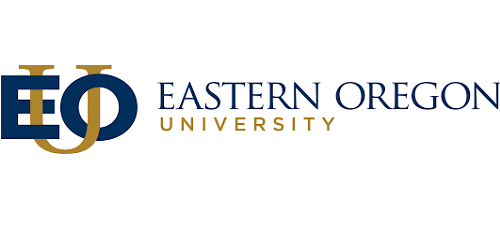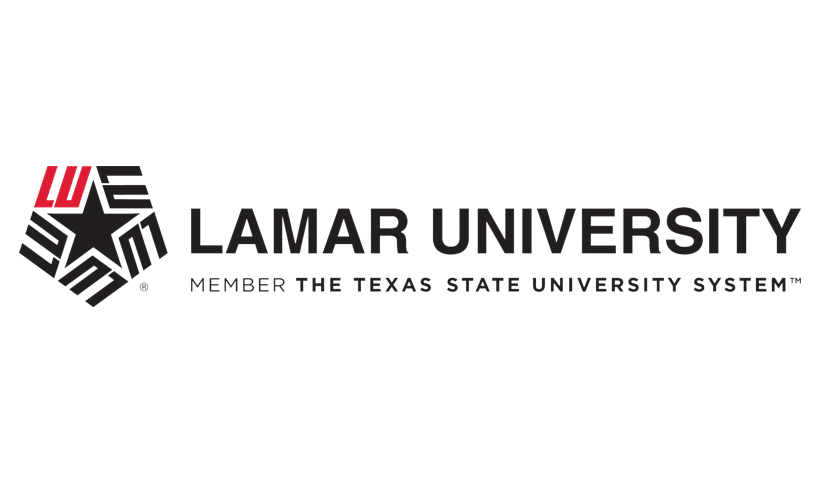Reviewed by: Megan Kelly, MA, LMHC
Students interested in helping individuals who are experiencing psychological stressors, such as the loss of a loved one, divorce, or financial troubles, may find themselves drawn toward a career in mental health counseling. Mental health counselors work with clients of all ages, including children, adolescents, adults, and the elderly, and they work with a variety of patient populations, such as homeless people, veterans’ groups, domestic violence survivors, and private practice clients.
The first step toward a career in the field is to pursue the right education. There are 175 U.S.-based mental health counseling degrees listed in our database, including seven associates in mental health counseling degrees, three bachelor’s programs, 160 master’s programs, and five doctoral programs. Aspiring mental health counselors have a variety of educational paths to choose from.
 Walden University : MS in Clinical Mental Health Counseling (CACREP Accredited, six specializations to choose from)
Walden University : MS in Clinical Mental Health Counseling (CACREP Accredited, six specializations to choose from) Northwestern University : Online MA in Counseling (CACREP Accredited)
Northwestern University : Online MA in Counseling (CACREP Accredited) Grand Canyon University : Master's Degree in Counseling (CACREP Accredited)
Grand Canyon University : Master's Degree in Counseling (CACREP Accredited) Liberty University : MA: Clinical Mental Health Counseling (Online with required intensives)
Liberty University : MA: Clinical Mental Health Counseling (Online with required intensives) National University : Master of Science in Clinical Mental Health Counseling (Accredited. No GRE. Scholarships Available)
National University : Master of Science in Clinical Mental Health Counseling (Accredited. No GRE. Scholarships Available) Mid-America Christian University (MACU) : Master of Science (MS) in Counseling (100% Online, No GRE Required)
Mid-America Christian University (MACU) : Master of Science (MS) in Counseling (100% Online, No GRE Required) The Chicago School : M.A. in Clinical Mental Health Counseling (Online Programs. CACREP Accredited.)
The Chicago School : M.A. in Clinical Mental Health Counseling (Online Programs. CACREP Accredited.) Colorado Christian University : Clinical Mental Health Counseling, M.A. - Online Curriculum (100% online, or hybrid format. )
Colorado Christian University : Clinical Mental Health Counseling, M.A. - Online Curriculum (100% online, or hybrid format. ) Butler University : Master of Science in Mental Health Counseling (Bachelor's Degree Required)
Butler University : Master of Science in Mental Health Counseling (Bachelor's Degree Required)Overview of Mental Health Counseling Degrees
Mental health counseling programs are often similar to sociology and social work programs, but with a greater focus on the practice of mental health counseling. Bachelor’s degree coursework may include classes in general psychology, clinical psychology, and human development, whereas master’s-level coursework may include classes such as the foundations of counseling, individual and group counseling, and ethical issues in counseling.
In recent years, colleges and universities have expanded their online degree programs, meaning that students interested in studying mental health counseling can choose to study on campus or online. The decision between in-person or remote higher education will be guided by lifestyle and learning preferences.
Consider a Featured Online Counseling Program
| School and Program Information | Online Program? Entry Requirements | Course Information | |
|---|---|---|---|
|
Walden University
MS in Clinical Mental Health Counseling
 CACREP Accredited CACREP Accredited |
✔ Online
GRE scores not required
|
Walden’s online CACREP-accredited MS in Clinical Mental Health Counseling program can help you become the competent, compassionate counselor you know you can be.
|
Learn More |
|
Northwestern University
Online MA in Counseling
 CACREP Accredited CACREP Accredited |
✔ Online
GRE Not Required
Bachelor's Required |
CACREP-accredited online Master of Arts in Counseling from The Family Institute at Northwestern University. Prepare to pursue licensure in as few as 18 months.
|
Learn More |
|
Grand Canyon University
Master's Degree in Counseling
 CACREP Accredited CACREP Accredited |
✔ Online
|
CACREP-accredited MS in Clinical Mental Health Counseling. Emphases: Marriage & Family Therapy, Christian Counseling, Childhood & Adolescence Disorders, & Trauma.
|
Learn More |
|
Liberty University
MA: Clinical Mental Health Counseling
 CACREP Accredited CACREP Accredited |
✔ Online
Online with required intensives
|
Our CACREP-accredited online master’s in counseling helps you become a skilled mental health counselor ready to empower others for positive change.
|
Learn More |
|
National University
Master of Science in Clinical Mental Health Counseling
WSCUC Accredited
|
✔ Online
GRE Scores Not Required
|
Focused on training highly skilled counselors to provide impactful and culturally sensitive mental health services in their communities.
|
Learn More |
|
Mid-America Christian University (MACU)
Master of Science (MS) in Counseling
Higher Learning Commission (HLC)
|
✔ Online
100% Online
|
Oklahoma’s largest MS in Counseling program, with emphases in addiction and substance abuse, applied behavioral science, clinical mental health counseling, and more!
|
Learn More |
|
The Chicago School
M.A. in Clinical Mental Health Counseling
 CACREP Accredited CACREP Accredited |
✔ Online
Bachelor's Degree Required.
|
This online CMHC program prepares students for a career offering mental health services in a variety of settings. CACREP-accredited.
|
Learn More |
|
Colorado Christian University
Clinical Mental Health Counseling, M.A. - Online Curriculum
 CACREP Accredited CACREP Accredited |
✔ Online
Bachelor's Degree
|
Optional program emphasis in Marriage and Family Therapy and Substance Use Disorders. CACREP-accredited.
|
Learn More |
|
Butler University
Master of Science in Mental Health Counseling
|
✔ Online
Bachelor's Degree Required
|
Graduates are prepared to go on to become licensed counselors in addictions and mental health in select states. Graduate in just 2.5-3 yrs.
|
Learn More |
*Sponsored Counseling Programs
For detailed degree information, view the guides to:
Online CACREP Accredited programs | Online MPCAC Accredited programs
Online Mental Health Counseling Programs: What You Should Know
“An online program can offer the best of both worlds for students: flexibility and opportunity,” says Megan Kelly, MA, LMHC , “For those who want or need to keep their day jobs while going to school, an online degree is one of the best ways to make this happen.”
Pursuing an online mental health degree program is a great way for students to further their education with fewer disruptions to their ability to work and live their lives while in school.
If you are currently employed and do not want to quit your job to attend school full time, an online mental health degree program might be right for you. However, keep in mind that the independence and flexibility of online degree programs requires you to be self-disciplined, organized, and able to meet deadlines without as much oversight as a traditional program.
Wondering which mental health master’s degree is right for you? Check out our list of the Top Mental Health Counseling Graduate Programs
Application Requirements for Mental Health Counseling Degree Online Programs
Applicants to online bachelor’s degree programs must have a high school diploma or an equivalent GED transcript. Although some programs require students to submit SAT or ACT scores and an application essay, others do not. Bachelor’s programs consist of general education and degree-specific coursework.
Admissions requirements to an online master’s degree program typically include a bachelor’s degree from an accredited institution at a minimum. Although some programs require that students submit GRE or GMAT scores and an application essay, others do not. Online MA programs in this field focus entirely on the area of counseling.
Online doctoral programs often require a master’s degree from an accredited institution in a related field, letters of recommendation from professional colleagues, and official and unofficial transcripts from all prior degree programs. Some colleges and universities require that applicants submit a statement of purpose to indicate why they are pursuing a doctorate. Doctoral programs are academic-oriented, research-based degrees designed for professionals who want to be regarded as experts in their field.
How Long Will It Take to Complete a Mental Health Counseling Degree Online Program?
Students interested in working as licensed mental health counselors must complete at least a master’s degree, which full-time students can complete in approximately six years: four years of undergraduate study and two years of graduate school. Upon completing a master’s degree, aspiring mental health counselors must also complete one to two years of supervised work experience before they can sit for their state’s licensing exam. The post-master’s degree clinical hours requirement varies widely from state to state, so you will want to research the requirements for the state where you wish to practice.
Professionals who wish to complete a doctorate will need to complete additional coursework. Most doctoral students find that they can complete their doctorate within four to eight years, depending on their pace of study.
Campus-Based Learning at a Mental Health Counseling School
In the past, campus-based mental health counselor degree programs were the standard for mental health counseling students. While some students prefer the privacy and self-reliance of online degree programs, others prefer an in-person experience. Students coming straight out of high school or who have just completed a bachelor’s may prefer in-person learning due to the hands-on direction and face-to-face instruction. Campus-based curricula are often identical to those offered in online degree programs.
 Walden University - MS in Clinical Mental Health Counseling (CACREP Accredited)
Walden University - MS in Clinical Mental Health Counseling (CACREP Accredited)
 Northwestern University - Online MA in Counseling (CACREP Accredited)
Northwestern University - Online MA in Counseling (CACREP Accredited)
 Grand Canyon University - Master's Degree in Counseling (CACREP Accredited)
Grand Canyon University - Master's Degree in Counseling (CACREP Accredited)
 Liberty University - MA: Clinical Mental Health Counseling (CACREP Accredited)
Liberty University - MA: Clinical Mental Health Counseling (CACREP Accredited)
 National University - Master of Science in Clinical Mental Health Counseling (WSCUC Accredited)
National University - Master of Science in Clinical Mental Health Counseling (WSCUC Accredited)
 Mid-America Christian University (MACU) - Master of Science (MS) in Counseling (Higher Learning Commission (HLC) Accredited)
Mid-America Christian University (MACU) - Master of Science (MS) in Counseling (Higher Learning Commission (HLC) Accredited)
 The Chicago School - M.A. in Clinical Mental Health Counseling (CACREP Accredited)
The Chicago School - M.A. in Clinical Mental Health Counseling (CACREP Accredited)
Differences Between Bachelor’s, Master’s, and Doctorate Level Mental Health Degrees
Whether you are just starting your educational journey or looking to enroll in an advanced mental health counselor degree program, our team has the information you need to help you understand how each degree can help further your career goals.
Bachelors in Mental Health Counseling
Undergraduate Mental Health Counseling programs are a great first step for people interested in pursuing a career within the field. Introductory courses such as psychology, sociology, and life span development provide students with an understanding of mental health’s foundations and expose students to various counseling techniques. Upon completion of a bachelor’s degree in mental health counseling, graduates are often prepared for entry-level jobs within this field, such as case manager, social worker, and intake and admissions counselor.
Masters in Mental Health Counseling
Master’s level programs focus more closely on the actual practice of mental health counseling. Coursework is designed to help students develop and refine their counseling skills by providing them with specific knowledge and skills in counseling techniques and interventions, such as client-centered counseling, cognitive behavioral therapy, and interpersonal counseling. Courses may include Mental Health Diagnostics, Treatment Planning, and Counseling Techniques. Upon completion of a master’s, graduates can participate in supervised clinical experience, which will ultimately enable them to sit for their state licensure exam.
View Master of Mental Health Counseling Degrees.
Doctorate in Mental Health Counseling
PhD programs in Mental Health Counseling provide students with a more in-depth approach to the discipline. At this level, students can choose a research-based PhD program or a Doctor of Psychology (PsyD) program, which focuses less on research and more on clinical practice. Doctoral students may engage in independent research projects, participate in in-person counseling, and learn various relevant leadership competencies.
Mental Health Counseling as a Career
Professionals within the field work directly with clients to identify their psychological stressors, develop treatment plans and implement psychological interventions to help clients understand, cope with, and overcome their problems.
The U.S. Bureau of Labor Statistics (BLS) reports that as of May 2021, the median annual wage for mental health counselors was $48,520 per year. The BLS also reports that employment of mental health counselors is projected to grow by 23% between 2020 and 2030, much faster than what’s projected for the overall job market. Job prospects will likely be best for individuals who have completed an education in a related field, such as an online bachelor’s or master’s degree in mental health counseling or psychology.
How to Become a Mental Health Counselor
Individuals interested in pursuing a career that allows them to provide support and treatment to mental health clients may be drawn to mental health counseling. People who struggle with trauma, depression, anxiety, stress, and other mental health conditions seek out counselors to provide support and direction during their time of need.
Earn a Bachelor’s Degree
The first step toward becoming a mental health counselor is to obtain foundational education in psychology and mental health . Students who want to work in mental health counseling often choose bachelor’s programs with concentrations such as psychology or counseling to learn the foundations of the field before pursuing a higher degree. The undergraduate curriculum introduces students to the mental health discipline from exploratory and developmental standpoints.
Earn a Master’s Degree and Become Eligible for Counseling Licensure
Upon completion of a bachelor’s degree, students can move into a graduate degree program. At the master’s level, students can pursue different specializations depending on their career interests. Master’s in Counseling, Master’s in Counseling Psychology, and Master’s in Clinical Mental Health Counseling programs are all popular choices.
The minimum requirement to become a licensed mental health counselor is to complete an accredited master’s degree in a related field, such counseling or psychology. Upon completion of a master’s program, graduates must earn anywhere from 1,500 to 3,000 hours of experience providing direct care to clients while under supervision. Post-grads must complete this supervised experience requirement before being eligible to sit for their state’s licensing exam. Although the clinical hours requirement varies from state to state, most aspiring mental health counselors find that they can complete this requirement in approximately two years.
Masters in Counseling Degrees
- Masters in Counseling
- Online Masters in Counseling
- Online Master of Arts in Counseling
- Online Masters in Counseling Psychology
- Masters in Mental Health Counseling
- Masters in School Counseling
- Online Masters in School Counseling
Consider a Doctoral Degree
While the master’s is the most common degree level for mental health counselors, some students choose to complete a doctorate. The two doctoral programs available in the field are the PhD, which is research-based, and the PsyD, which places a greater emphasis on clinical work.
What Kind of Mental Health Counselor Program Should I Choose?
Prospective mental health counselors are well-served when they start from the beginning with a bachelor’s degree in a related field.
Bachelor’s in psychology programs are a popular choice, as the coursework provides students with a foundational understanding of developmental, cognitive, abnormal, and clinical psychology. “While an undergraduate degree in psychology is not a requirement for many master’s programs, it may help set you apart from the crowd when applying to your ideal mental health counseling graduate program,” states Megan Kelly, MA.
Sociology programs are also popular for aspiring mental health counselors, with coursework that may include sociological theory, group dynamics, and collective behavior dynamics. Students may also choose to enroll in a bachelor’s in counseling program, which may include coursework such as counseling theory, human development, and multicultural counseling.
Upon completing an undergraduate-level mental health counselor program, aspiring counselors must complete a master’s degree in a related field. Examples of related programs include a master’s in psychology with a concentration in mental health counseling or a master of arts in mental health counseling.
Accreditation for Mental Health Graduate Programs
The search for the right school can be overwhelming. Factors including the length of time needed to complete the program, cost, and a university’s reputation can all influence decision-making.
To meet state licensure requirements and sit for a licensing exam, it’s recommended that students earn their bachelor’s and master’s degrees from accredited programs. The U.S. Department of Education’s Office of Postsecondary Education evaluates college and university programs and grants accreditation. A list of the nation’s accredited institutions can be found on its website.
While a school’s accreditation is important, it’s crucial to make sure that the specific program is also accredited. The most prominent agency that accredits mental health counselor programs is the Council for Accreditation of Counseling and Related Educational Programs (CACREP). This organization reviews the curricula of bachelor’s and master’s degree programs to ensure that they provide the coursework necessary to produce effective professionals.
In researching mental health counseling schools, look for accreditation information on the degree’s webpage. If a university has regional but not program-specific accreditation, its degree may not allow you to become a licensed counselor.
Counseling Degrees by State
Compare different types of counseling careers:
How Much Do Mental Health Counseling Programs Cost?
Your choice of institution for a mental health counseling program will play a role in the cost of your education. While some universities have higher tuition because they have a higher application rate, others include additional fees that drive up the total cost.
Our team of experts has looked at several CACREP-accredited programs to provide you with an understanding of the costs.
Walden University offers an accredited online MS in Clinical Mental Health Counseling program with total program tuition costs of $39,042. Other associated fees total between $2,900–$3,100, with additional technology fees of $1,815, bringing the cost to $43,757 –$43,957.
The Chicago School of Professional Psychology is another popular online school dedicated to psychology-related mental health counseling programs. Tuition for MS programs is $1,303 per credit hour; the tuition can total well over $60,000 for a standard 60-credit master’s-level program. Lab fees are $100 per semester, and students must pass a criminal background check, which has a fee of $40. Insurance fees vary depending on the student.
Mental Health Counseling Degree Salary and Job Growth
- Mental Health Counselors – All Fields:: $53,490 mean salary in 2021, with an expected growth of 23% between 2020 and 2030 (BLS).
- Mental Health Counselors – Local Government:: $63,580 mean annual salary (BLS).
- Mental Health Counselors – Individual and Family Services:: $52,170 mean annual salary (BLS).
- Mental Health Counselors – Residential Intellectual and Developmental Disability, Mental Health, and Substance Abuse Facilities:: $45,150 mean annual salary (BLS).
What Do Mental Health Counselors Do?
Mental health counselors work with people suffering from psychological stressors and conditions that negatively impact their lives. Examples include domestic violence, trauma, sexual assault, divorce, grief, and addiction.
An Example of a Mental Health Counseling Client
Mental health counselors help people understand, cope with, and overcome psychological struggles. For example, a counselor may treat clients who struggle with anxiety disorders, panic attacks, anxiety, and persistent worry and fear that make it hard to complete daily tasks.
Clients may need help to formulate a plan of action to reduce their anxiety. Mental health counselors evaluate clients’ lifestyles; determine stressors and triggers, such as work deadlines, marital issues, or phobias; and develop treatment plans. Treatment plans’ goals are to reduce clients’ anxiety and change their lives for the better.
Clinical Settings for Emotional and Behavioral Issues
There is no replacement for a great mental health counselor. Counselors work in a variety of fields and clinical settings, such as hospitals, schools, government agencies,mental health clinics, and private practice. Mental health counselors provide supportive interventions for individuals, groups, and families struggling with anxiety and depression, adjustment disorders and post-traumatic stress disorder (PTSD), or and obsessive-compulsive disorder (OCD) or eating disorders.
Mental health counselors play an important role in society because they help ensure that individuals can face their challenges with dignity.
“Becoming a mental health counselor is an amazing way to help your community and strengthen your skills in empathy, active listening, and implementing evidence-based interventions to treat mental health conditions,” says Megan Kelly, MA. “Truly, it is a wonderful career path for those who want to make a greater impact in the world around them.”

 Colorado Christian University - Clinical Mental Health Counseling, M.A. - Online Curriculum
Colorado Christian University - Clinical Mental Health Counseling, M.A. - Online Curriculum Butler University - Master of Science in Mental Health Counseling
Butler University - Master of Science in Mental Health Counseling



